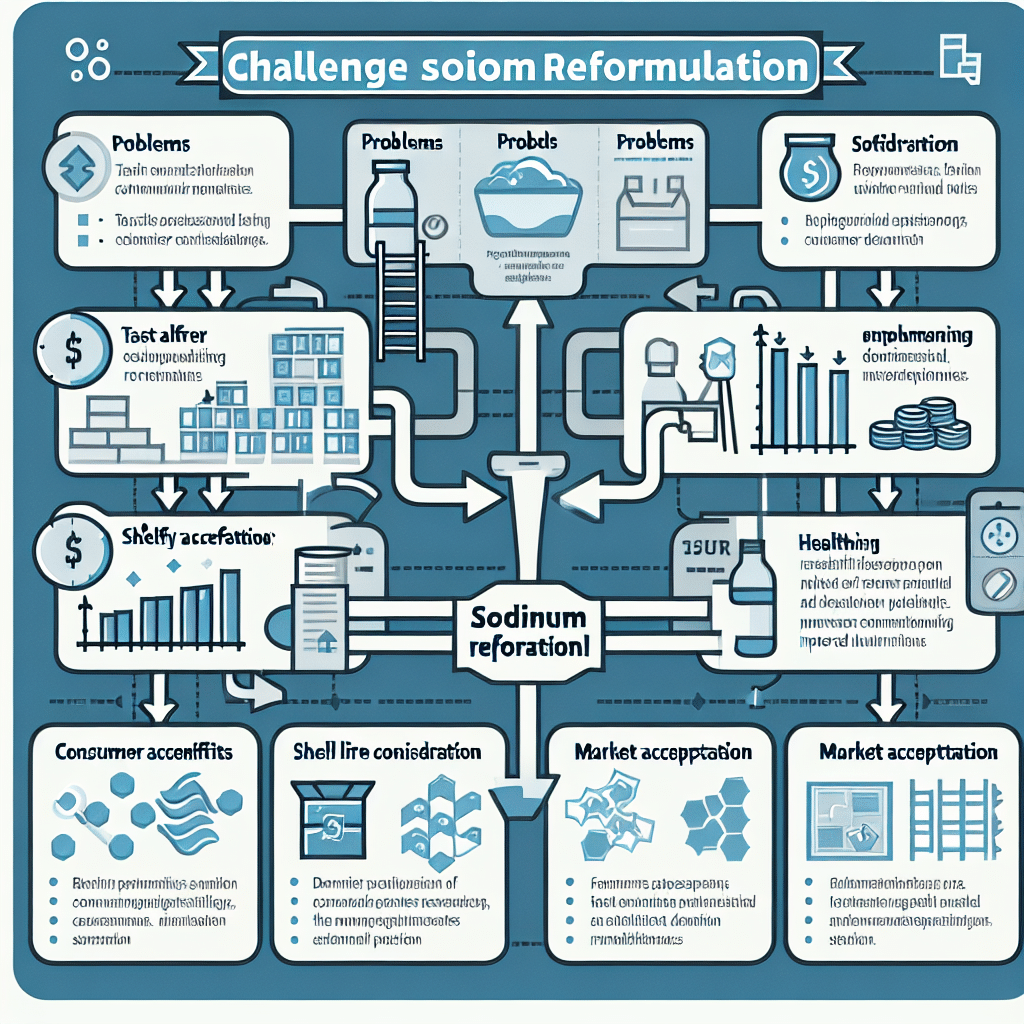Sodium Reformulation: Challenges and Opportunities in the Industry
-
Table of Contents
- Sodium Reformulation in the Food Industry: Balancing Health and Taste
- The Need for Sodium Reduction
- Challenges in Sodium Reformulation
- Opportunities in Sodium Reduction
- Innovative Strategies for Sodium Reduction
- Case Studies and Statistics
- Conclusion: The Future of Sodium Reformulation
- ETChem’s Protein Products: Enhancing Health and Nutrition
Sodium Reformulation in the Food Industry: Balancing Health and Taste

The global food industry is facing a significant challenge: reducing sodium content in food products without compromising taste or quality. Sodium reformulation presents both challenges and opportunities for food manufacturers, as they strive to meet consumer demands for healthier options and adhere to public health recommendations. This article explores the complexities of sodium reduction, the innovative strategies being employed, and the potential benefits for both consumers and the industry.
The Need for Sodium Reduction
Excessive sodium intake is a major health concern linked to high blood pressure, heart disease, and stroke. The World Health Organization (WHO) recommends a maximum intake of 2,000 mg of sodium per day, yet many populations consume far more. This has led to a push for sodium reformulation in processed and packaged foods, which are the primary sources of dietary sodium.
Challenges in Sodium Reformulation
- Consumer Acceptance: Taste is a key driver in food choice, and salt plays a critical role in flavor. Reducing sodium can lead to a perceived loss of palatability, making consumer acceptance a significant hurdle.
- Technical Limitations: Salt is not just a flavor enhancer; it also serves as a preservative and texturizing agent. Finding alternatives that can perform these functions without negatively impacting the product is technically challenging.
- Cost Implications: Research and development of low-sodium alternatives can be costly. Additionally, reformulated products may require new marketing strategies to ensure successful adoption.
Opportunities in Sodium Reduction
- Health Benefits: Reformulating products to contain less sodium can contribute to public health by reducing the risk of diet-related diseases.
- Market Differentiation: Offering low-sodium products can set a brand apart in a market increasingly focused on health and wellness.
- Innovation: The push for sodium reduction has spurred innovation, leading to the development of new ingredients and processing techniques.
Innovative Strategies for Sodium Reduction
Food manufacturers are employing various strategies to reduce sodium content while maintaining product quality:
- Gradual Reduction: Slowly lowering sodium levels over time can help consumers adapt to the taste of less salty products without a noticeable difference.
- Flavor Enhancement: Using spices, herbs, and other natural flavor enhancers can compensate for reduced saltiness.
- Salt Substitutes: Potassium chloride and other salt substitutes can mimic the taste and function of sodium chloride, although they come with their own set of challenges.
- Physical Modifications: Altering the size and shape of salt crystals can increase their surface area, enhancing saltiness perception at lower concentrations.
Case Studies and Statistics
Several companies have successfully reduced sodium in their products:
- Company A: By gradually reducing sodium in their bread products by 10% each year, they achieved a 30% reduction over three years without affecting sales.
- Company B: Introduced a line of low-sodium snacks using a blend of spices and smaller salt crystals, resulting in a 25% sodium reduction and a positive consumer response.
Statistics show the impact of these efforts:
- A study found that a 10% reduction in sodium content across processed foods could prevent tens of thousands of cardiovascular events annually.
- Consumer surveys indicate that over 50% of shoppers are actively seeking lower-sodium food options.
Conclusion: The Future of Sodium Reformulation
Sodium reformulation is a complex but necessary endeavor for the food industry. While challenges such as consumer acceptance and technical limitations exist, the opportunities for health benefits and market differentiation are significant. Through innovative strategies and gradual implementation, the industry can successfully reduce sodium content in food products, contributing to a healthier population and a more sustainable food system.
ETChem’s Protein Products: Enhancing Health and Nutrition
In the context of sodium reformulation, protein-rich products from ETChem can play a vital role in enhancing the nutritional profile of food items. ETChem’s diverse range of collagen products, including marine, fish, bovine, and chicken collagen, offer food manufacturers high-quality protein ingredients that can be incorporated into various formulations. These proteins not only contribute to the overall health benefits of food products but can also help in maintaining the desired texture and consistency, which is crucial when reducing sodium content.
For food manufacturers looking to innovate within the realm of sodium reduction, ETChem’s protein offerings provide a valuable resource. By integrating these proteins into their products, manufacturers can create healthier options that appeal to consumers’ growing interest in wellness without sacrificing taste or quality.
About ETChem:
ETChem, a reputable Chinese Collagen factory manufacturer and supplier, is renowned for producing, stocking, exporting, and delivering the highest quality collagens. They include marine collagen, fish collagen, bovine collagen, chicken collagen, type I collagen, type II collagen and type III collagen etc. Their offerings, characterized by a neutral taste, instant solubility attributes, cater to a diverse range of industries. They serve nutraceutical, pharmaceutical, cosmeceutical, veterinary, as well as food and beverage finished product distributors, traders, and manufacturers across Europe, USA, Canada, Australia, Thailand, Japan, Korea, Brazil, and Chile, among others.
ETChem specialization includes exporting and delivering tailor-made collagen powder and finished collagen nutritional supplements. Their extensive product range covers sectors like Food and Beverage, Sports Nutrition, Weight Management, Dietary Supplements, Health and Wellness Products, ensuring comprehensive solutions to meet all your protein needs.
As a trusted company by leading global food and beverage brands and Fortune 500 companies, ETChem reinforces China’s reputation in the global arena. For more information or to sample their products, please contact them and email karen(at)et-chem.com today.




